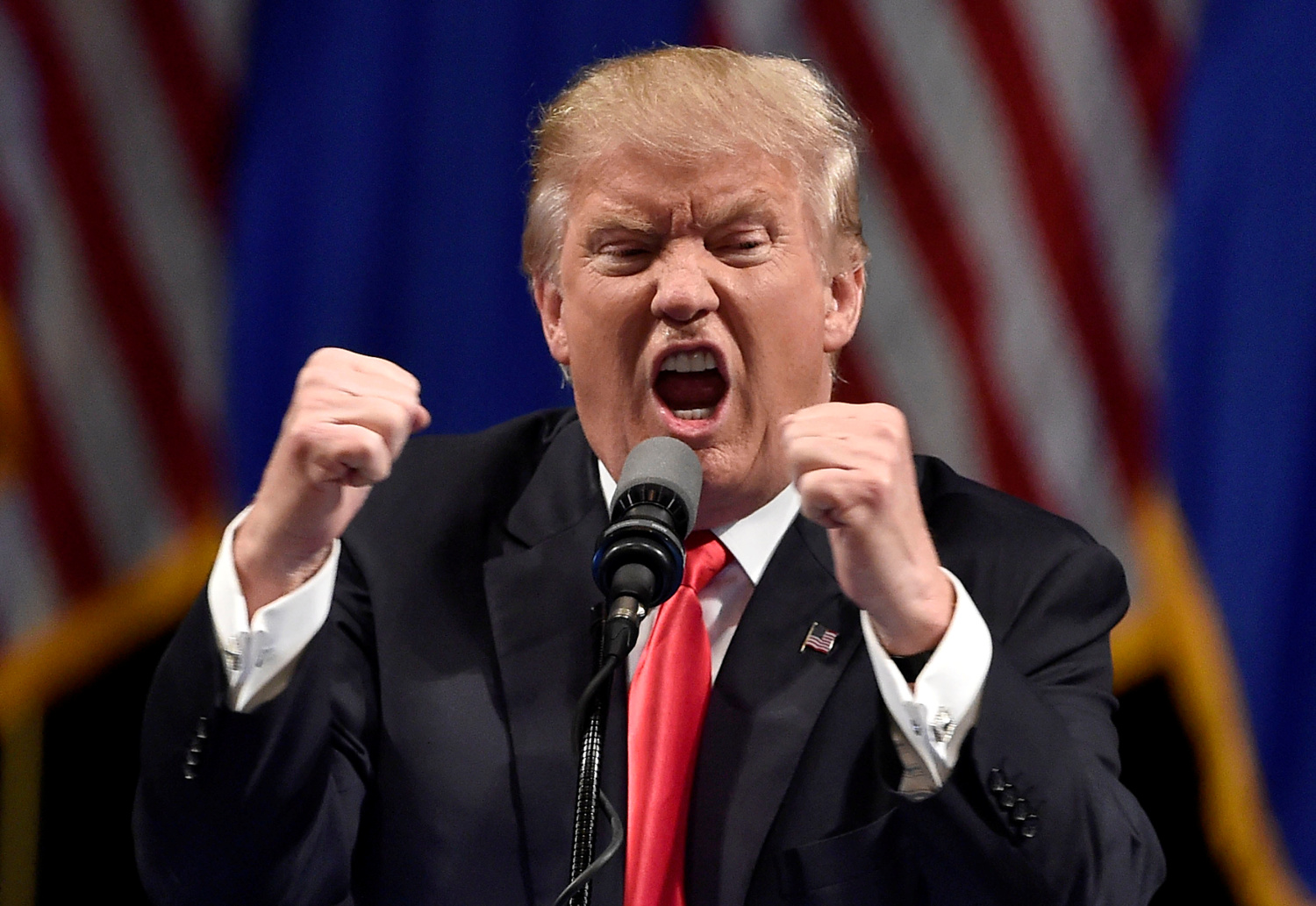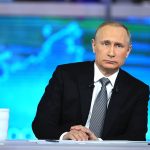by Justus de Visser
The world is endangered, not yet by armed conflict between major powers, but by climate change, migration trends, and a growing neglect of norms and values that have underpinned the post-war global order. So, Your Honor, let me make my case in defense of a liberal order as succinctly as I can.
It is probably safe to assume that Donald Trump knows very little about the Helsinki Final Act of 1975. And yet that document turned out to be of greater importance than the conferences of Yalta and Potsdam. Where Yalta and Potsdam cut Europe into two, the Final Act, to the utter astonishment of many, laid the basis for the reunification of Europe. Such a Europe stands for the norms and values that can be found in the Universal Declaration of Human Rights, in the American Constitution, in the UN Charter, and in so many other documents that are fundamental to Western civilization.
These norms and values are an essential ingredient of the peace and stability that developed over the last 70 years. America not only contributed military strength to this world, but it also spread, where it could, a belief that human rights, the rule of law, freedom of the press, and representative parliamentary democracy are the fundamentals of modern society. It successfully returned those values to their cradle by saving Europe twice from disaster in the last century.
It seems probable that many of those who voted Donald Trump into office, and were enraptured by his inauguration speech, are themselves unaware of the Helsinki Final Act and would find it as difficult as the new president to understand how liberal values have underpinned the Pax Americana—not only in Europe but also in Japan, where modern society stands in glaring contrast to pre-WW II Japan, and via Japan elsewhere in Asia. The entire northern hemisphere, aside from some notable exceptions, has developed into a region known for its respect for the values that the United States has championed during the Pax Americana.
If, under President Trump, the United States is going to cease championing those values, it will not be long before that neglect has consequences for peace, stability, democracy and the rule of law. After all, a similar neglect has been developing elsewhere in the world. Russia in the late 1990s returned to form by electing Vladimir Putin as a leader with whom Russians can easily to identify. Such a leader is by definition not an exponent of an “open society,” the liberal society that George Soros has been trying to promote. And Putin has found followers at the highest level in Hungary, Poland, Slovakia, the Czech Republic, and Bulgaria as well as among aspirants to power in Western Europe such as Frauke Petry in Germany, H.C. Strache in Austria, Marine Le Pen in France, and Geert Wilders in the Netherlands.
These politicians have one thing in common: they are pursuing policies that will result in a return to provincial nationalism or what Prime Minister Orbán of Hungary, unaware of the contradiction in terms, calls “illiberal democracy.” They have embarked on a journey that could well lead to a renewed splintering of Europe, and to the aggression that, history teaches us, comes so naturally to Europeans. Britain, too, has opted for a return to provincial nationalism. No matter how often Prime Minister Theresa May repeats that she believes in a Global Britain, she’s really embracing a “Little England” over the protests of the Welsh, Scots, and Northern Irish.
Fortunately there are still people like the woman in Hawaii who initiated the recent Women’s March in Washington, which spawned many similar protests around the United States and the world. They showed President Trump, during his first days in office, that the American people are heterogeneous. There are many Americans who want to continue down the path that Americans chose over 70 years ago, after President Roosevelt showed them the flag of honor and inspiration!
NATO and the EU Can Strengthen the United States
Before ascending to the presidency, Trump stated clearly and loudly that he considers the 70-year-old NATO “obsolete.” President Trump is right, as were all his predecessors since John F. Kennedy, that the European members of NATO should contribute more and better to the alliance. But President Trump is wrong if he thinks America will benefit from abolishing NATO.
President George W. Bush’s experiment with going it alone in the Middle East did not turn out to be a terrific success. And when pressure from President Trump has resulted in deeper European defense cooperation and increased defense expenditure, it will become apparent that the NATO alliance still has much to offer—not just to Europe but to the United States and the world at large—because a reinvigorated NATO can be a force for stability and peace. A reinvigorated NATO can also help Trump achieve “better deals” with Russia, for example, and with China. The US bargaining position will be stronger if Trump can speak for NATO, and not just for the United States. NATO allies will be the voices of moderation. “By all means try to improve China’s performance in the international economic sphere, they will say, but, please, let’s not go to war with China.”
Then there is the European Union. The better to champion liberal values, the EU must transform itself from a machinery for legislation through diplomatic negotiation into an effective policy-making body. The EU must develop its defense capabilities and defense industries—not to duplicate NATO but to strengthen NATO—and there must be greater cooperation on the ground of the sort exhibited by the Dutch, German, and Belgian armed forces. The EU must better integrate the anti-terrorism activities of European intelligence services, the judiciary, and police authorities. The EU must define common asylum and immigration policies in which all member states, including those in Central and Eastern Europe, take their fair share of refugees.
On the Union’s external front, the transatlantic relationship remains of the utmost importance. Trump’s election can help to concentrate minds. The EU, like the European members of NATO, can contribute to President Trump’s understanding that the United States and Europe are stronger together than separate, a strength that is needed because the world is undergoing great change.
By drawing closer together to make the EU a more effective force the member states can also bring about a normalization of relations with Russia. If Russia understands that it cannot undermine the cohesion of the EU, it will be more willing to come to terms with that same EU. Russia is no enemy of the rest of Europe, but it is a “special kind of neighbor.” It will take a long time for Russia to evolve into an open and democratic society. The EU (and the United States) should allow it that time, but not let Russia undermine EU cohesion in the meantime.
The EU has its role to play on the shores of North Africa and in the Middle East—if only because it is the first region to be flooded by refugees that cannot all be corralled like cattle in Greece and Italy. The EU has been too absent from the Middle East. It must return to the region, with all kinds of assistance, including military, to help war-ravaged countries rebuild themselves. The EU does not pursue regime changes per se but has come to accept that change may sometimes be inevitable to allow for progress.
Protectionism
It may well be that the Transatlantic Trade and Investment Partnership (TTIP) was too ambitious for Europeans and Americans alike. It may be that the loss of the TTIP is a price that has to be paid for overlooking the fact that global trade liberalization creates losers as well as winners. It cannot be denied, however, that open-trade policies have contributed enormously to the benefit of Europeans and Americans since the Second World War.
So, switching from liberalization to all-out protectionism would be unwise. It would put living standards at risk. It could result in trade wars, and, experience has taught us, trade wars can end in wars. Conversely, economic integration has contributed to peace and stability.
So, there it is, Your Honor. A world without liberal values, a world centered on national identities, a world “protected” by protectionism, a world without Pax Americana risks being a world in which all, including Americans, suffer immeasurably. I rest my case.
Ambassador (ret.) Justus de Visser was a member of the Netherlands diplomatic service for over 40 years. Following service in Paris, the NATO Defense College and Moscow he was head of the Strategic Planning Staff at the time of German reunification, director for European integration, and ambassador to Warsaw, the Organization for Security and Cooperation in Europe and Vienna.






I wish a pox upon “liberal values” and all other ideologies that prop up the western oligarchy. NATO was created to combat the illusory threat from the USSR. The USSR is no more. NATO and all other large standing military forces have served their original purposes; they continue to exist only to feed the voracious maws of military contractors and to serve the narrow interests of those psychopathic national leaders who care not for the lives of other people.
If the EU cannot be reformed to become a democracy that serves the needs of the 99% rather than the 1%, then it deserves to crumble away.
It is time to give peace and democracy a chance.
I thought for a time that this was a joke (Justus/justice!!).
—because a reinvigorated NATO can be a force for stability and peace. LOL
“America not only contributed military strength to this world, but it also spread, where it could, a belief that human rights, the rule of law, freedom of the press, and representative parliamentary democracy are the fundamentals of modern society. ” Well, that has long gone.
“European members of NATO should contribute more and better to the alliance.” Here is where I thought the author was an American, always pretending that the USA is “helping defend us” and we refuse to pay. NO, Justus is right that Russia is NOT an enemy but a European nation, and we should NOT be relying on military might to make and fight enemies, but we should try peace. NATO is NOT a peacemaker.
Thanks for the thoughtful article with lots of good points!!!